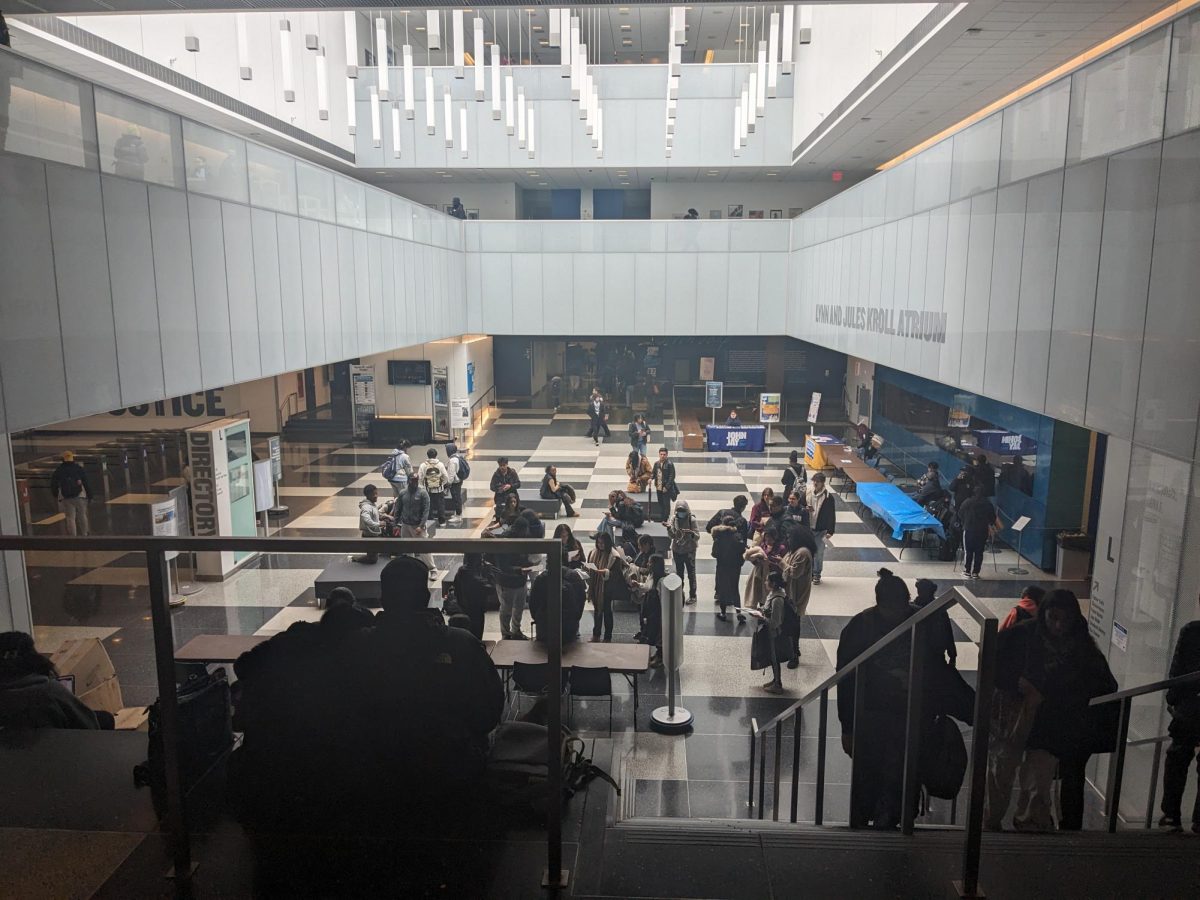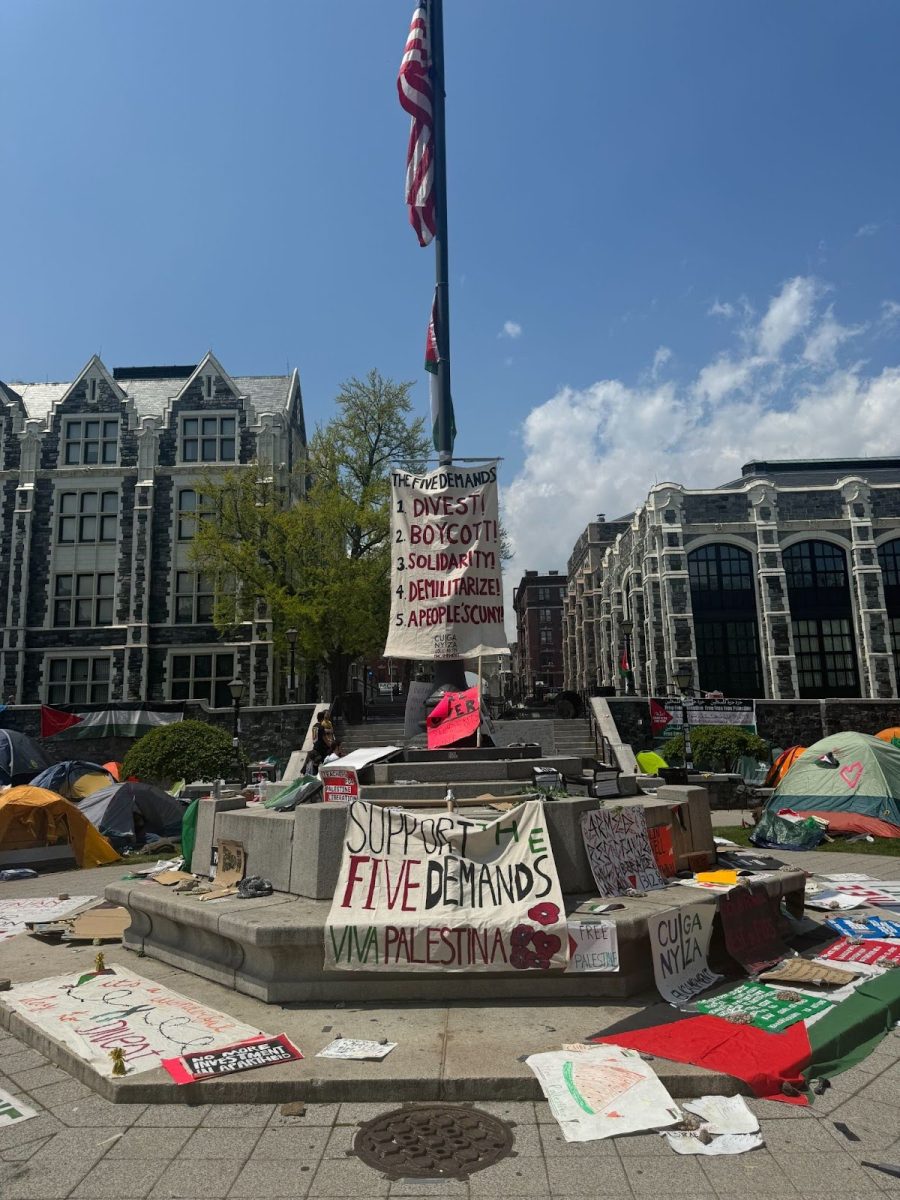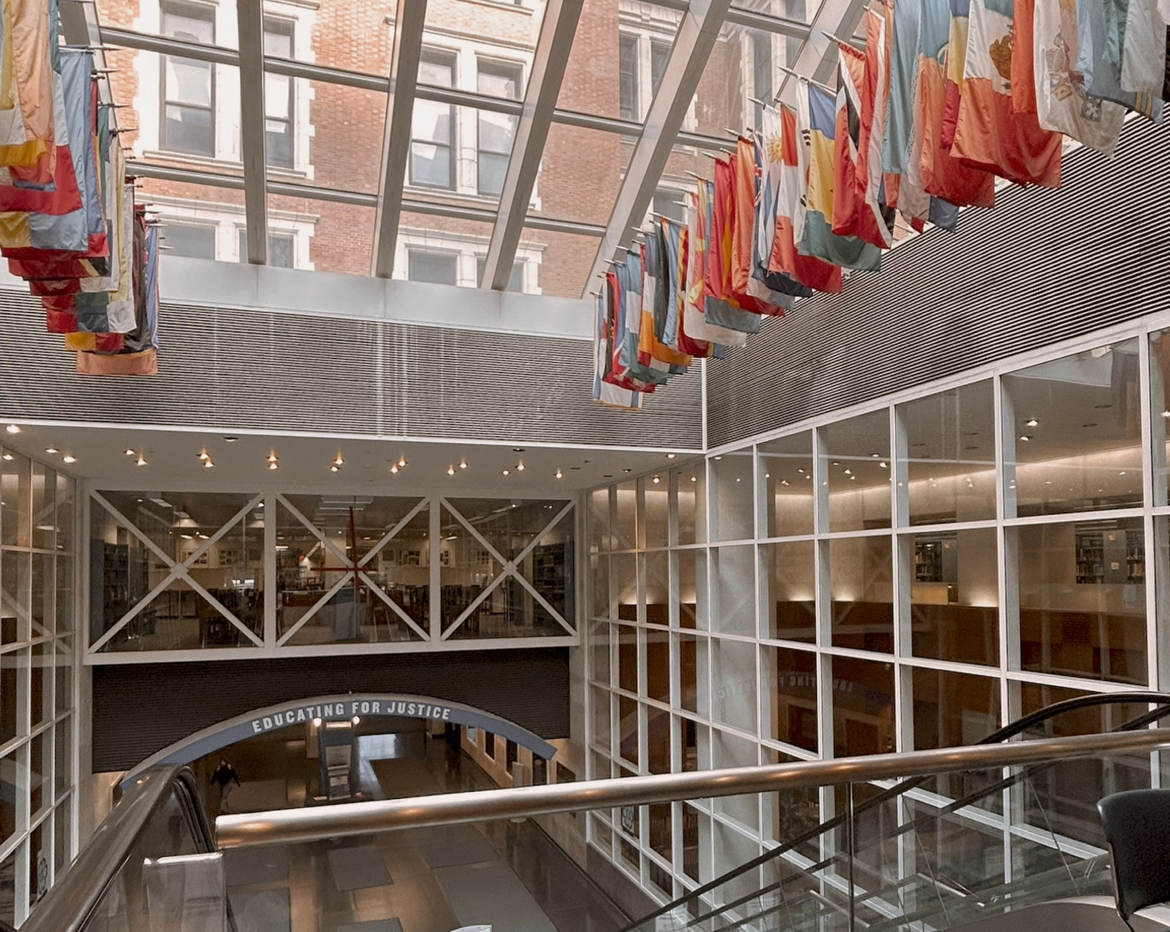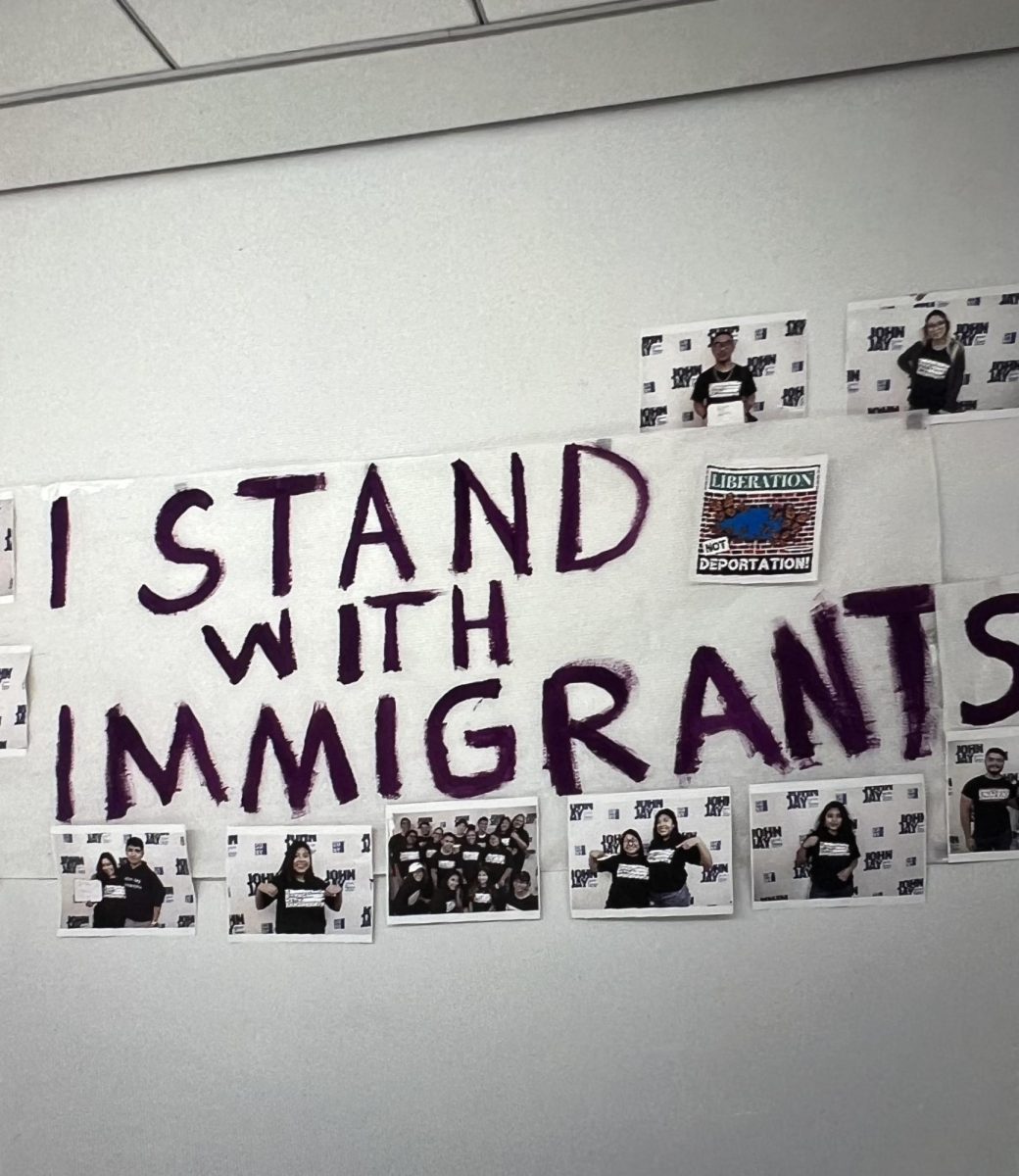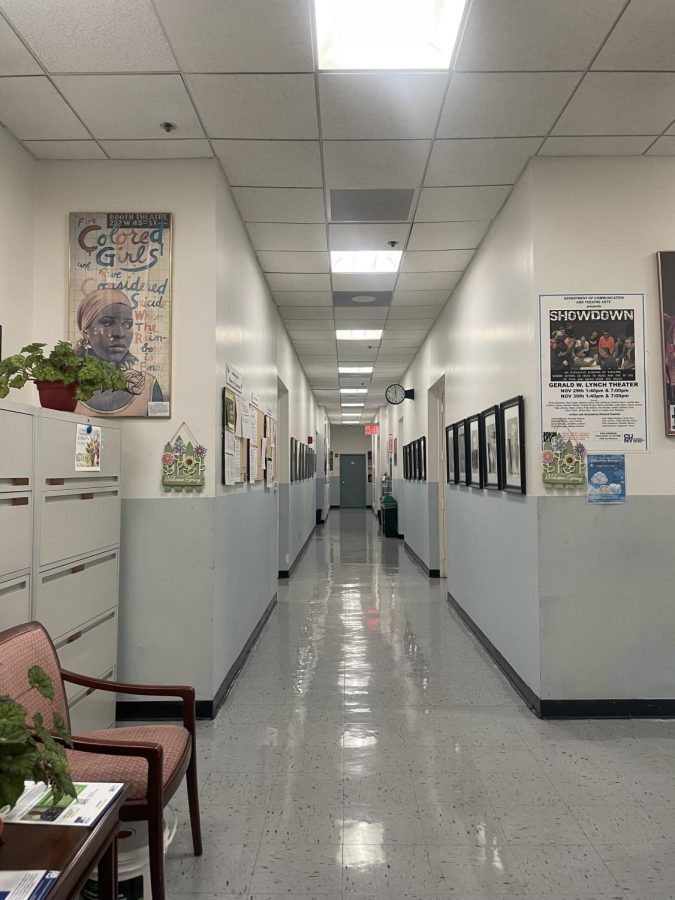Mayor Eric Adams double-downed on his promise in December to cut back on allocating resources to higher education, which caused layoffs at nine CUNY colleges. These recent cutbacks made by the Eric Adams-led city government may have been pulled back, but their impacts on students and faculty are being felt across all areas of CUNY.
For Faheem Abdur-Razzaaq, a part-time professor at John Jay, these cutbacks have negatively affected his salary even though he has taught on campus for seven years. Abdur-Razzaaq worked as an adjunct before becoming full-time professor for the past two years, facilitating more classes.
“I was informed that only full-timeemployees contribute to receive pensions,” the part-time professor brought up. In addition, his Friday classes are no longer being offered.
However, since moving to part-time, Abdur-Razzaaq has lost out on several other staffing benefits including his health insurance and his pension. Abdur-Razzaaq specified that when he switched from working full-time into his part-time position, he had lost over $55,000.
CUNY faculty have health insurance opportunities as part of their benefits. Some part-time professors get these benefits under the Federal Consolidated Omnibus Budget Reconciliation Act of 1985 or COBRA.
CUNY provided Abdur-Razzaaq with normal health insurance perks as part of his full-time benefits. However, after he switched to part-time, Abdur-Razzaaq stated that he had to give up these benefits. He said, “COBRA is too expensive. The price for monthly coverage is not affordable based on my current income.”
As such, many departments had to decrease the number of classes being offered as well as personnel, Abdur-Razzaaq recounts. “I witnessed many adjuncts with reduced schedules and courses,” Abdur-Razzaaq said. “It also eliminated positions for the CLTs [College Laboratory Technicians] and assistance staff,” he continued.
However, these cutbacks have not just targeted faulty, part-time or otherwise, but also its ever-growing student community. Aiisha Qudusi, President of John Jay’s Student Council, has growing concerns about its impact on how future student events are planned as well as her own responsibilities in the larger picture.
The Student Senate, led by President Qudusi, has lobbied CUNY management to reverse these cutbacks. However, she sees the cutbacks as part of a larger systematic problem, exacerbated by the war in Israel.
“Last minute changes only happen when it comes to student advocacy for Palestine,” President Qudusi said. “It becomes exhausting as President when you get called upon to call out other Student Leaders and Administrators’ actions because they aren’t doing their jobs fairly,” she remarked.
These worldwide events have caused intense divide between CUNY’s advisory committees and the resulting student community. According to President Qudusi, there has been a lack of acknowledgement of student advocacy from President Karol V. Mason on this issue as well as the cutbacks.
On the other hand, Daniel Oresanya, Secretary of John Jay’s Student Council, believes that all students, including himself, are also forced to adapt with the lack of classes. These changes in class scheduling have become the biggest issue as many CUNY students also deal with multiple jobs and other personal responsibilities.
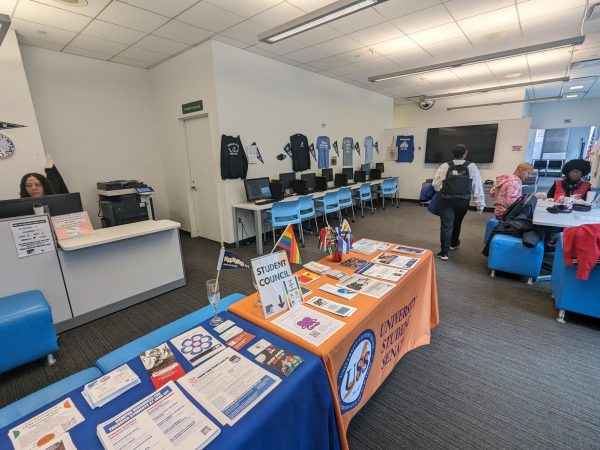
“It’s a lot of stuff going on and as council members, we want an environment where it’s peaceful and [there’s] like no drama,” Secretary Oresanya said.
John Jay’s Student Council also consists of students highly dedicated to making the most out of their time by joining campus clubs and organizations. However, many students like Oresanya believe that these cutbacks will influence students to not get involved on campus.
“If there’s a lot of cutbacks on things that make me a student, then what’s the point,” Secretary Oresanya continued. “At that point, I’m just going to school for class and back home,” he reflected.
Although students and faculty fear that the Adams-Hochul implemented cutbacks may continue to strike, a prominent union of CUNY staffers is hoping to push back against the incoming waves. PSC-CUNY, a union that embodies more than 30,000 CUNY staff members, is campaigning on several issues ranging from better health benefits to increased funding in CUNY.
“I agree with PSC-CUNY’s position and proposal,” Abdur-Razzaaq said. Currently, PSC-CUNY has made several proposals to address these issues including increased wage rates in salary schedules in its current contract to a pension lawsuit against CUNY. “We need to restore the previous budget which provided for teaching assistants and more course offerings,” he added.
As for the student body, President Qudusi believes that the best way students can support such actions, whether it be PSC-CUNY’s plan or advocating for a ceasefire, is by showing up and showing out.
“There’s a certain pressure on our shoulders to speak out in every way possible for those who can’t,” Qudusi said.
With high school graduates seeking out the CUNY college they want to join, the effects of these cutbacks will ultimately determine how their college experience will go. “I hope these issues won’t affect prospective students going into the Fall semester, however, they most likely will,” she said.


